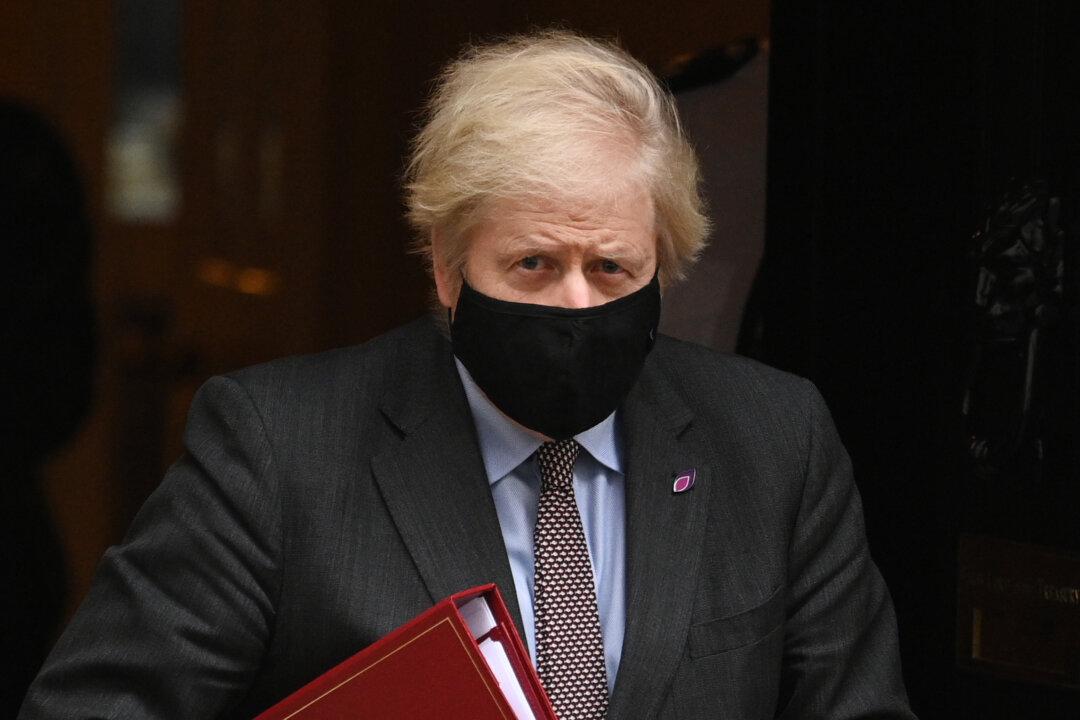British Prime Minister Boris Johnson said on Wednesday that “perpetual lockdown is no answer” to the CCP virus pandemic, as he came under pressure from the opposition over the UK’s rapidly growing death toll, which has exceeded 100,000.
“When you have a new virus and indeed when you have a new variant of that virus of the kind that we have in this country, when you have dilemmas as hard and as heavy as this government has had to face over the last year,” he said in Parliament, “there are no easy answers” and “perpetual lockdown is no answer.”





